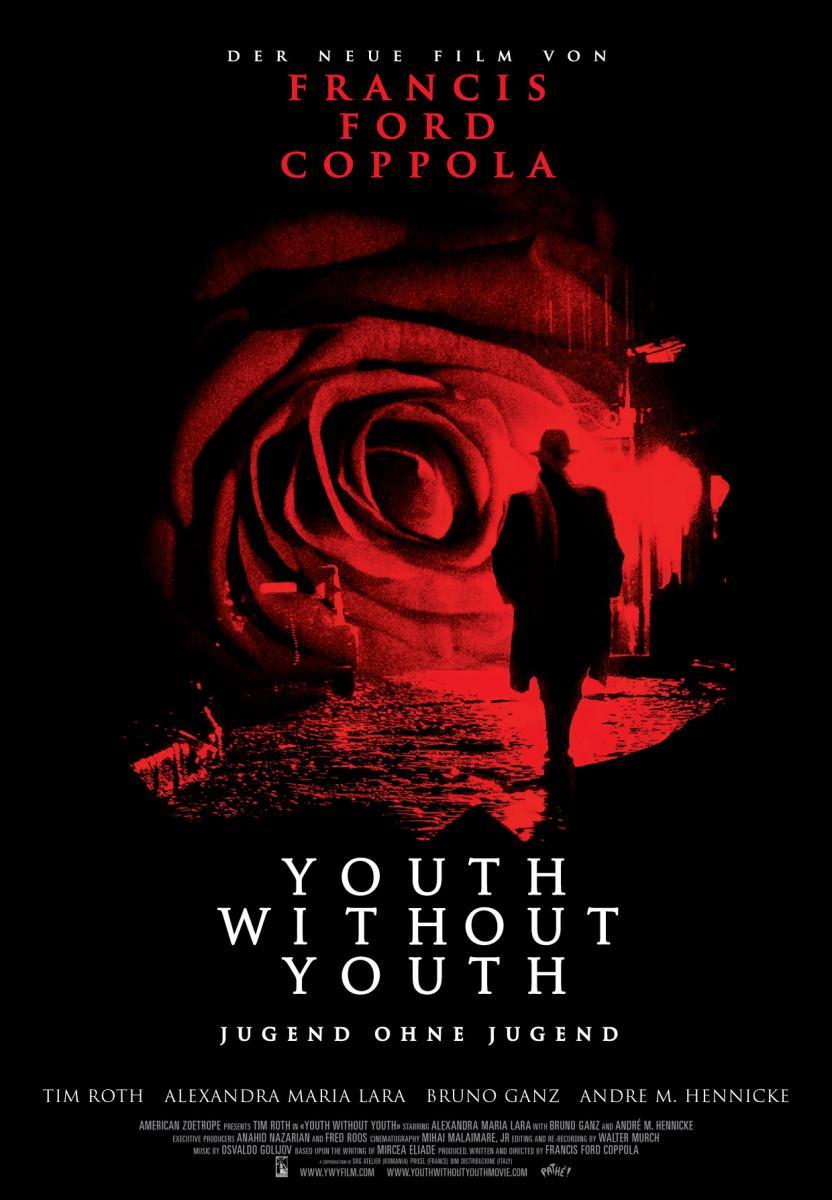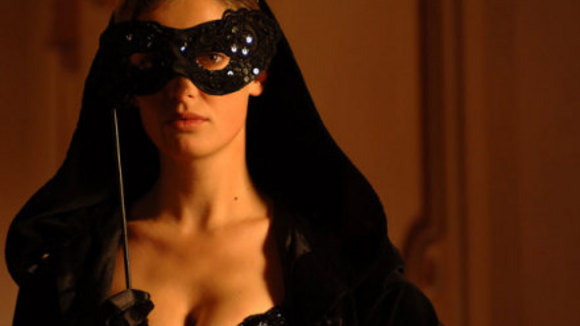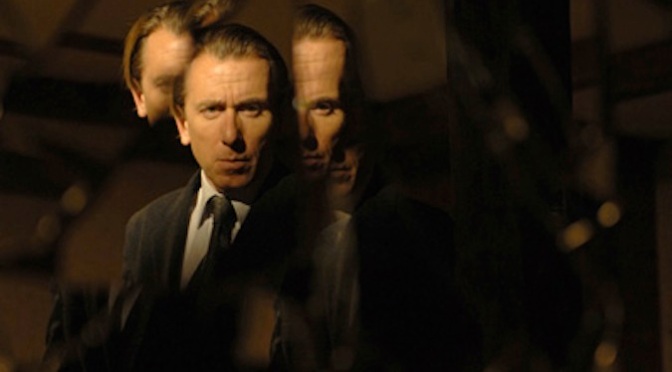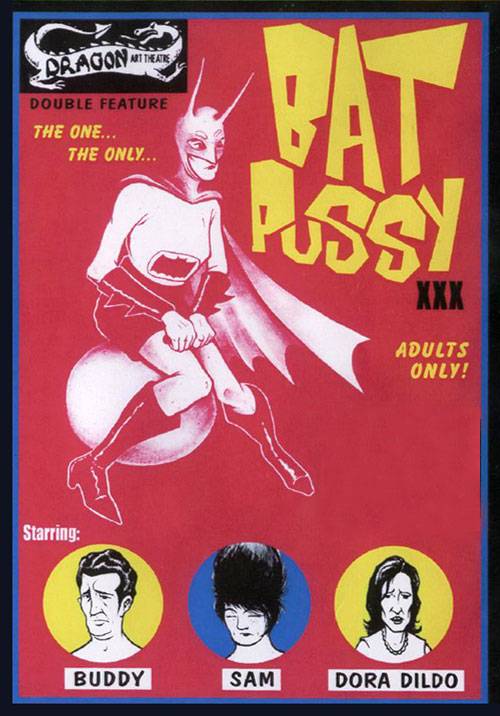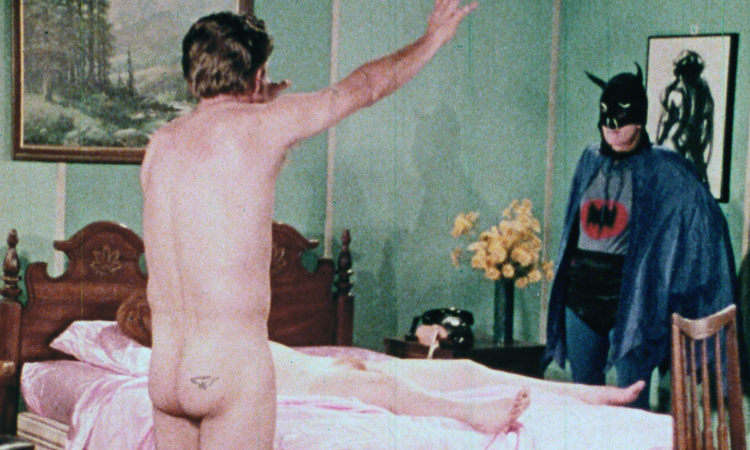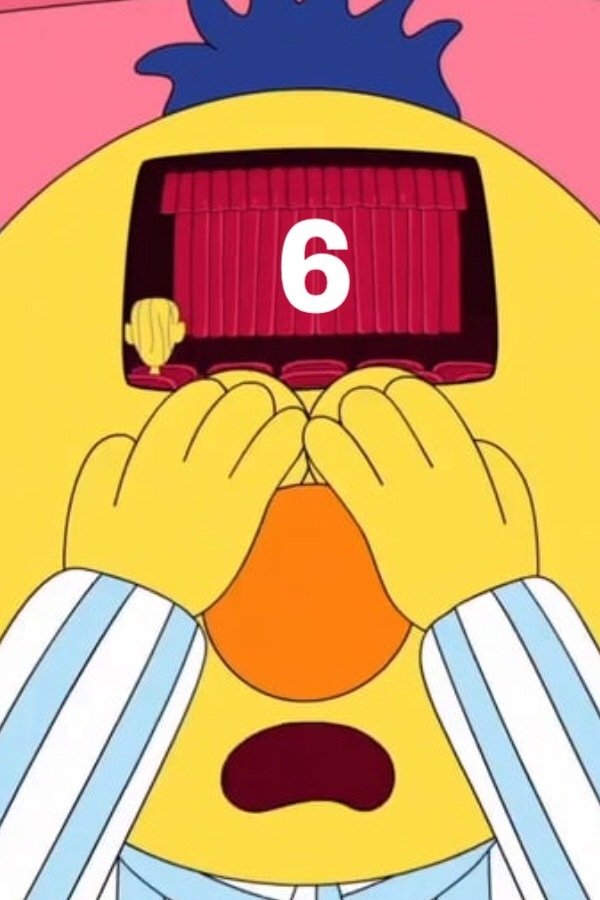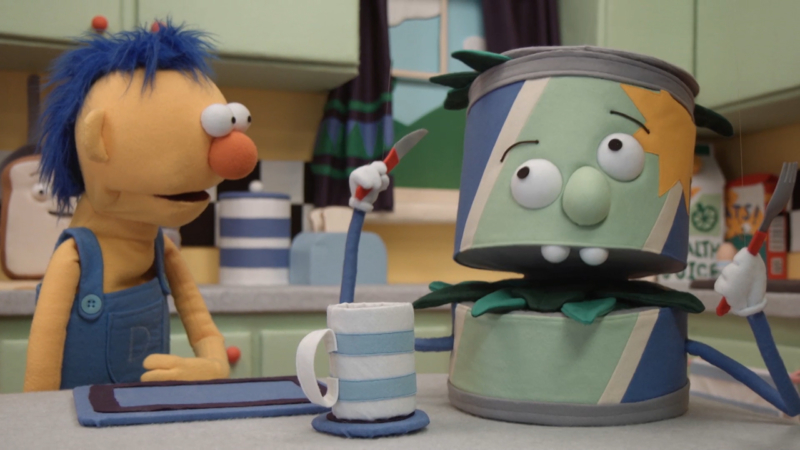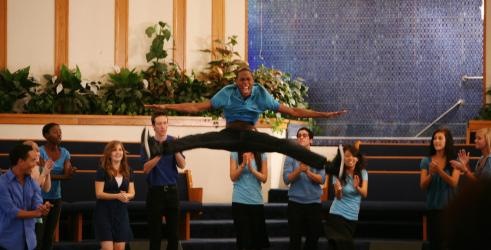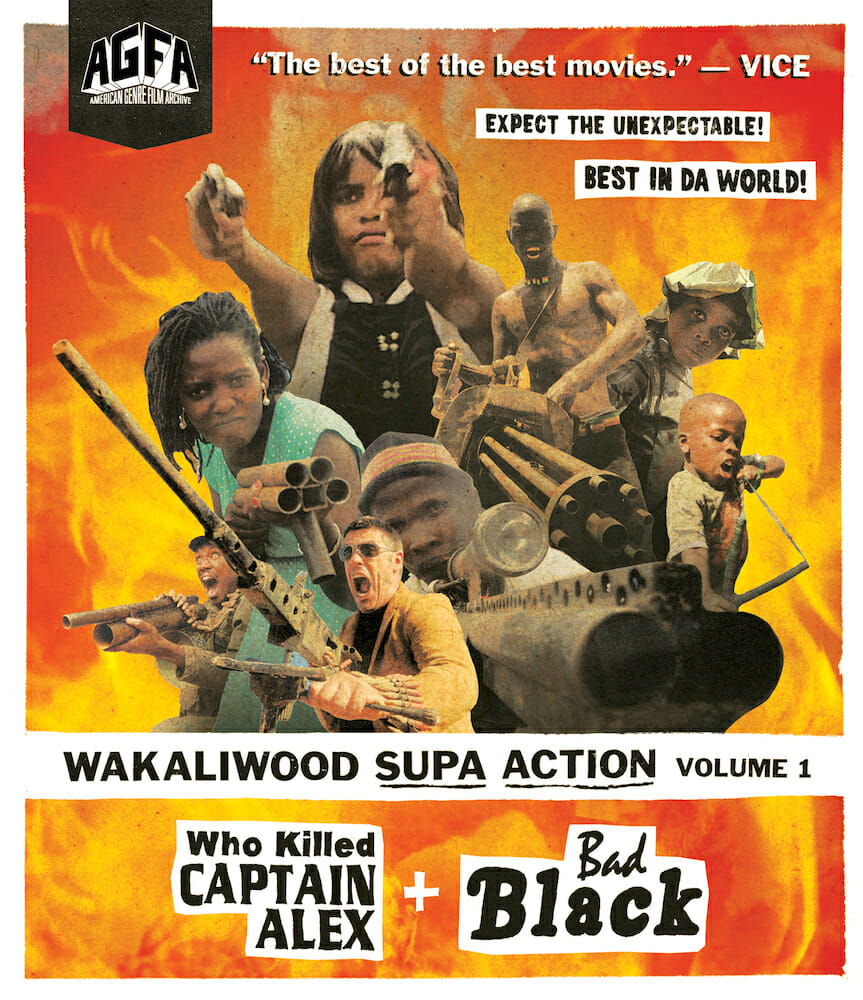 |
| From https://www.diabolikdvd.com/wp-content/ uploads/2019/01/AGFA-013.jpg |
Director: Nabwana I.G.G.
Screenplay: Nabwana I.G.G. (Alan
Hofmanis for Bad Black)
Cast: (Who Killed Captain Alex?) Kakule William as Captain Alex;
Kakule Wilson as Alex; Sserunya Ernest as Richard; G. Puffs as Puffs; Faizat
Muhammed as Natasha; Bisaso Dauda as Rock; Nakyambadde Prossy as Ritah
(Bad Black) Nalwanga Gloria as Bad Black; Alan
"Ssali" Hofmanis as Doctor Ssali; Bisaso Dauda as Hirigi
Obscurities, Oddities and One-Offs
 At the time of this review,
Ugandan filmmaker Nabwana I.G.G. would
have seen a film in a cinema for the first time in his life, his film Crazy World
(recut for 2019) premiering at midnight at the 2019 Toronto Film Festival.
Alongside the twitter image of him stood alongside one of my own personal
filmmaking heroes, Takashi Miike, it's
arguably a fairytale about one man, in a poverty stricken slum named Wakaliga, in
Uganda's capital of Kampala, who'd eventually create a studio there called Wakaliwood that not only managed to
catch the world on fire with their work, but has even gotten to the point that
not only did the studio help the community, as everyone wanted to work with
him, but that even the president of Uganda Yoweri
Museveni included support for the film industry in his 2016 campaign
promises. The best part is that it's by way of making action films, a genre
that is usually dismissed, the first apparently costing less than $200 to make
and becoming the online sensation called Who
Killed Captain Alex?.
At the time of this review,
Ugandan filmmaker Nabwana I.G.G. would
have seen a film in a cinema for the first time in his life, his film Crazy World
(recut for 2019) premiering at midnight at the 2019 Toronto Film Festival.
Alongside the twitter image of him stood alongside one of my own personal
filmmaking heroes, Takashi Miike, it's
arguably a fairytale about one man, in a poverty stricken slum named Wakaliga, in
Uganda's capital of Kampala, who'd eventually create a studio there called Wakaliwood that not only managed to
catch the world on fire with their work, but has even gotten to the point that
not only did the studio help the community, as everyone wanted to work with
him, but that even the president of Uganda Yoweri
Museveni included support for the film industry in his 2016 campaign
promises. The best part is that it's by way of making action films, a genre
that is usually dismissed, the first apparently costing less than $200 to make
and becoming the online sensation called Who
Killed Captain Alex?.
Who Killed Captain Alex? was a film I merely viewed as a curiosity
when I first saw it. A greater bit of background really however grows the joys
of Alex as a film and adds an
emotional heft to both a) really cheaply made and wonderfully charming action
films, and b) in lieu that I'm not a huge action film fan in the slightest. I've
always found, to be honest, that unless I care for the stories or the craft is
felt to be done at the best possible, that even action scenes in any film
usually lead to me turning off and feeling bored. To which these Ugandan action
films have an entire layer of cultural and idiosyncratic aspects, from where
they come from and how they were even made, which is the greater wealth for me,
alongside the fact that here, you definitely see the hard work to even
coordinate these films' action scenes and learn to appreciate them. These
aspects would grow on from Alex to Bad Black, Nabwana I.G.G.'s bigger film in which Wakaliwood sincerely has the
goal to keep improving and making better films the more I.G.G. and everyone else in Wakaliga make them.
 |
| From https://m.media-amazon.com/images/M/MV5BYTQ0MzAzZGEtN jE1My00YmE4LTg4ODgtZGU2OThmN2E0Y2M4XkEyXkFqcGdeQXVyNTE5NzIyNTQ@._V1_.jpg |
A poignant detail is knowing I.G.G. grew up during the regime of Idi Amin; how the transition to the violent background to violent films inspired by American action cinema and martial arts cinema might surprise some, but alongside the fact the tone of these films is intentionally more playful, there's inherently a more healthier and complex viewpoint to these films, where some incredible dark jokes are found, not just those Video Joker (V.J.) Emmie's commentary in these films, but the material itself onscreen. Then there's the simple fact they are made by people clearly enjoying themselves, removing all the horrors of real life violence by way of this heightened exaggerated world where men and women are bad assess and the true sign of coolness is when Emmie names you Uganda's equivalent of a legendary action star.
Just trying to make a film with Who Killed Captain Alex? there's a
sense of time, sweat and tears having to be spent to create where, even in the
current films, the guns were made from carved wood and pieces of metal, with
CGI blood splatter or condoms filled with red paint (cow's blood originally
until at some point the more sanitary choice wisely chosen), made by an entire
community where even the children are being taught martial arts by I.G.G.'s own brother half-brother and
star Robert Kizito, who learnt
martial arts originally by finding Chinese martial arts magazines on the market
and recreating the moves self-taught.
There's even an American in said
community, as after only seeing a second of Alex's trailer, Alan "Ssali" Hofmanis shipped
himself from Manhattan to live in Wakaliga and has brought his own knowledge to
help with this community whilst playing anyone from "America's Jean-Claude
Van Damme" or Jesus Christ in a Christian music video. That's not even
daring to forget a certain distinction for these films, VJ Emmie, whose style
of providing humorous quipping over films he informs the viewer over his track
for Alex is custom to Ugandan film watching; he not only adds a lightness to
the material but eventually he became such a distinct part of these films Nabwana I.G.G. started building his
films entirely around Emmie quipping
one-liners over them as part of the final cut.
 |
| From https://m.media-amazon.com/images/M/MV5BNDgzN2Y 3ZjItNWFhNi00NWFmLTgyYWEtNWM0MWQ4ZDgyNjY2XkEyXkFqcGdeQXVyNTE5NzIyNTQ@._V1_.jpg |
The sense of catharsis for these films is palpable especially with this background context, especially as in knowledge that Wakaliga was a slum, suffering from poverty, which has found a hub for everyone to collaborate on and bring an industry to the area. And that's not something, the word "slum", to bandy about glibly either; Who Killed Captain Alex>, when I had more precise subtitles to view it with alongside Emmie's English VJ commentary, openly brings up jokes about the story, where the military are trying to take out the villainous Tiger Mafia, in a farcical nature whilst particularly with Emmie having a lot of morbid humour that is to be found in Bad Black too. In general even the studio in its advertising and promotional image plays off this corpse black humour; in any other context jokes about cannibalism and Ebola would be offensive, but when black Ugandans are making these jokes, it not only reveals a healthy world view of dealing with subjects, as long as expose how naive Westerners are in how this community doesn't bat an eyelid to making violent action films, but they keep promising and making films about them, at one point I.G.G. even wanting to make a film where Baraka Obama visits Uganda and gets kidnapped by cannibals1.
It's clear everyone who
contributes to Wakaliwood has no issues finding humour in this material. They
are as happy to even make light of the bleaker things in life, jokes in the
script and Emmie between both films
about streams being where human waste also goes in, or just revelling in some
of the absurdities of the plots themselves, like Emmie mocking the main villain in Alex loving his brother when he's taken captive by the heroes.
Emmie just by himself, once you get used to him, is a key virtue to
these films; whilst Who Killed Captain
Alex? without his VJ commentary is interesting, it's not surprising the American Genre Film Archive release of
these two films in 2019 has Bad Black
with only Emmie talking over it, as
its clear the joker's as much the texture and fun of the films as what's
onscreen. Alex in particular is at
times a ridiculous film, in lieu to its history as the first of these films to
exist, and it's clear that with absolutely love for what they made, everyone's
still in good humour about a film which has a lot of quirks. Where they managed
to still have a green screen helicopter sequence, with a helicopter so
digitally created its part of the charm, or the bizarre use of a panpipe
instrumental cover of Kiss from the Rose by Seal used that leads to one of Emmie's funniest improvisations
alongside calling giant birds in one scene "dinosaurs". The action
when it transpires is utter chaos, a mess of quick editing at times and CGI
exploding buildings, but in lieu to its budget its admirable, and thankfully
with both Alex and Bad Black the director-writer learnt the
virtue that his films shouldn't be too long, Alex just over an hour and Bad
Black less than eighty minutes.
 |
| From https://fantasticfest-site.s3.amazonaws.com/films/ 41518/bad_black_5__large.jpg |
And Alex in particular has to be held higher as it comes from a community where, especially back then, Nabwana I.G.G. had to learn how to build his own computers to create those CGI effects and put the film together, in a community where even the reliability of electricity could be erratic. Notably, tragically, the film is technically "lost", the only surviving backup a standard DVD version as he had to delete and sacrifice the original materials to even make another film, something the opening text is adamant to point out. Also if anything, with the aforementioned involvement of Robert Kizito, the martial arts in context of this film are actually incredible to see, particularly from Kizito as the brother who is out for revenge for the death of his brother, the titular Captain Alex, where even with the speeded up footage it's a surprise to witness this far back in Wakaliwood' history.
Watched without Emmie, Alex does lose a bit, and it says
a great deal as mentioned the later films were made around him, the VJ
contributing a lot of great moments like Kizito
being dubbed Uganda's Bruce Lee, "Bruce U", or how the stand out
character from Bad Black, a young
boy playing a super strong assistant to Hofmanis'
as an American doctor, is dubbed by Emmie
"Wesley Snipes".
Move to 2016 with Bad Black, I.G.G became more ambitious as his international recognition grew,
acknowledged in how this feels like a shift up in trying to improve the
filmmaking and technical craft. There's also a jump in ambition in the
storytelling, which does lunge from plot point to plot point with some
crudeness, but the widening scale is found in how, even if there's no attempt
to differentiate them, the plot even exists in multiple time scales which
aren't always in chronological order in the slightest on purpose. A use of fast
forward abruptly also shows a promising side of visual humour, and the brief
segment of "Uganda's first Women-In-Prison Movie" does also reveal
the highlight of a female prisoner Emmie
starts calling Godzilla, rightly so as she batters anything that moves. There's
even a passage that is played entirely seriously, with Emmie not making any jokes in the slightest, in which our titular
anti-heroine as a child is stuck under abusive adults who force homeless
children to beg on the streets, causing one to see that even a film like this
meant to be fun is going out of its way to still drawn from real life issues
for a community.
 |
| From https://1.bp.blogspot.com/-rB_xBJShfY4/XRJgMohlThI/AAAAAAAANfo/wj9_FWa aNKAu_k7pVXV3kTc-1noTc8-NACLcBGAs/s1600/003.jpg |
Bad Black is still a romp mind, progressive further in production with superimposed model cars for car crashes, alongside an actual car chase for a brief moment which (involving green screen) even includes a child actor having a stunt scene. At this point, already mentioned, Hofmanis was part of the community at this point, thus leading to the best aspect of the whole of Bad Black between him and the young boy, part of Wakaliwood's child star system, dubbed Wesley Snipes in which the later has to whip the adult into shape to live up to his family's history of being commandos. It says a lot, to my sense of humour and how Nabwana I.G.G. knows innately to play to the audience, in which filming a scene of Hofmanis trying to martial arts kick cabbages into pieces besides cows, he keeps the shot in immediately after one kick of one of those cows eating the remains.
In terms of no budget, micro
budget cinema, these pair make a potentially big cultural mark in how, as
regional world cinema, this community have jumped out in terms of a movement of
Ugandan cinema where, whilst there are films made there, these films will
probably be the most well known and are actually having a beneficial influence
on said locale were poverty is a huge issue. The fact a president promises to
financially assist the film industry as a result of Wakaliwood in his election
campaign is utterly alien to Western cinema, where outsiders are pushed out by
huge conglomerates or Hollywood.
Honestly, the only bad aspect to
the entire pair is that in Alex,
because the subtitles are clearer, you have a character using the term
"faggot" at least in the translation of Swahili dialogue, which is a
shame and also completely out of tone with what Nabwana I.G.G.'s cinema is. Whilst it's gory and absurd, it'd be a
terrible experience for I.G.G.'s
films if he ever made anything nasty, particularly when Alex ends with a sung tribute to grandmothers and has a wholesome
air of accomplishment. The one bad moment, merely a second, is utterly against
the goodwill and wholesomeness that Nabwana
I.G.G.'s films and Wakaliwood's materials suggest, and thankfully, that's
the only thing between the films that sticks out. Even the sex jokes, where you
learn that "beat the rat" is apparently Ugandan slang of sleeping together,
feel tonally appropriate; even Emmie
dubbing over a torture scene of a female character, one of Richard's brides in
a flashback, of her having being caught watching Nollywood films has an
appropriate streak of twisted humour that's humorous than tasteless.
The pair together was utterly
enjoyment as you might have gathered, Who
Killed Captain Alex? in particular having grown in terms of being a
micro-budget cult film which went from just being a fascinating oddity but
something truly admirable, any flaws taken in account to how difficult it
would've been to just make the film from nothing. Together the films perfectly
encapsulate that dream that anyone and everyone can make a film if they have a
film camera that will enrapture people, here actually happening for real and
managing, through the hard work Wakaliwood did, to put Nabwana I.G.G. and everyone in his community on the map. Hence, I.G.G. got to go to the Toronto
International Film Festival in 2019 and might rise even further up the more
ambitious and determined he is.
 |
| From https://m.media-amazon.com/images/M/MV5BOWU0Y jJmYjctNWNjMS00NTM2LWJmN2QtM2IyMTc3MzU3NzNiXkEyXkFqcGdeQXVyNzg3NDI3MjM@._V1_.jpg |
======
1) HERE
